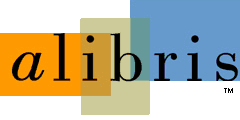
Browse a special section of books about democracy, history, and politics for public radio's Whose Democracy Is It? |
There are innumerable Web sites devoted to aspects of democracy - politics, elections, advocacy, organizations, think tanks and blogs. What follows is an initial list of truly useful and interesting web nuggets.
What they say: The Center for Responsive Politics is a non-partisan, non-profit research group based in Washington, D.C. that tracks money in politics, and its effect on elections and public policy. The Center conducts computer-based research on campaign finance issues for the news media, academics, activists, and the public at large.
Why visit: Whose democracy is it? You'll get a few answers by visiting this fascinating site. Detailed and easy to use tracking of national office holders and campaign money. We love the feature that shows what ambassadors to major countries contributed to the different political parties.
What they say: The International IDEA Voter Turnout Website contains the most comprehensive global collection of political participation statistics available. Regularly updated voter turnout figures for national presidential and parliamentary elections since 1945 are presented country by country, Looking for info about voter turnout all over the world up til 1998 this is a fascinating page.
Why visit: It's not the most comprehensive (the data ends in 2000) but, this Swedish Web site is an intriguing compilation of voting data. You can see what voter turnout is all over the globe. No, the United States doesn't measure up too well.
What they say: The Center is dedicated to fair elections where every vote counts and all voters are represented. As a catalyst for reform, we conduct research, analysis, education and advocacy to build understanding of and support for more democratic voting systems.
Why visit: This page has detailed state by state results of the 2000 US presidential election. Settle some trivia arguments here.
What they say: Election Nexus, an resource for aspects of the U.S. electoral system maintained by Dr. Michael McDonald, an Assistant Professor at George Mason University. The information available here is a compilation of my research interests, with an emphasis on voter turnout, redistricting, and campaigns.
Why visit: Detailed information on voter turnout and voter eligibility in the United States. Especially sobering are the numbers of those ineligible to vote because they have served time behind bars or are currently in prison.
What they say: An independent, nonpartisan resource on trends in American public opinion.
Why visit: If you search and search for the latest opinion polls to get the 'mood of Americans,' then your journeys are over. This is a simple, easy site that has some of the most recent polling data from media and polling organizations.
What they say: Project Vote Smart is a citizen's organization dedicated to serving all Americans with accurate and unbiased information for electoral decision-making. Its policies, procedures and structure are designed to guarantee absolute impartiality and standards of excellence in fulfillment of its mission.
Why visit: A good, basic and easy to use site that has data and info on presidential candidates and public officials. Some of the people listed have responded to PVS' issues questionnaire, others have not. But you can also get campaign finance info and relatively comprehensive public statements.